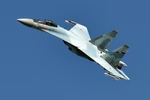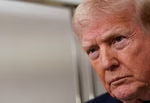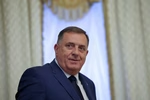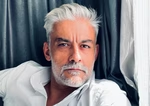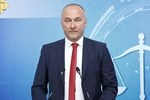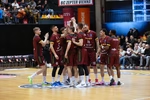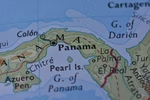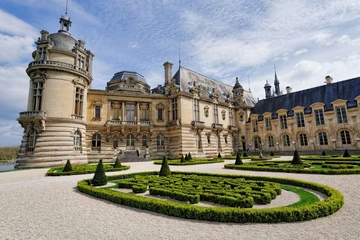
Public Broadcasting Service’s (PBS) journalist Malcolm Brabant brings the story of rising nationalism and Russian influence exposing the old fault lines in Bosnia and Herzegovina, which was wracked by a three-way ethnic conflict 1992-1995. Now some fear it is on the brink of conflict again.
In the past, the Serb dominated, Republika Srpska entity capital, Banja Luka, might have expected a visit from the Bolshoi Ballet or Moscow’s state circus. These days, Russia sends the Night Wolves motorcycle gang, without their motorcycles when it’s snowing.
Reuf Bajrovic who has just published a report for the Foreign Policy Research Institute on Russian meddling in the Balkans says that the Night Wolves are bad news. “I mean, them appearing somewhere means that there’s something in the making. They spread a hateful ideology. It is an anti-civilization, nihilistic, gangster view of the world.”
“In reality, they are an extremist paramilitary group. They are a mechanism of the Russian state. People who followed the seizure of Crimea, the aggression against Ukraine know very well that this group is a signal by the Russian state of its intent,” Bajrovic claims.
The Night Wolves claimed they were on a pilgrimage to reinforce Russia’s centuries-old historical, cultural, and Christian orthodox spiritual ties with the Serb part of Bosnia. “God bless you, heroes,” said the Serb Orthodox priest Dragan Vidovic, who seemed unconcerned that two of the Night Wolves’ leaders had been barred from entering Bosnia for security reasons. “Look, you know what? If bikers are bad guys, it only comes from American films. Actually, I don’t judge people for what they are doing,” Vidovic said. “We judge them if we hear about good or bad deeds. I don’t know these guys personally, but I know of the things they have done, and, in the past, they brought humanitarian aid to Kosovo and Republika Srpska.”
The Russian bikers did not want to talk to PBS. There are some Balkan experts who believe that this visit was nothing more than a publicity stunt. Serbs say it was not evidence of Russian meddling in the Balkans. But, according to critics, what this visit has done is to stoke up nationalism, and in this current nervous climate, that is unhelpful, to say the least.
A professor at the Faculty of Criminology in Sarajevo Goran Kovacevic told Malcolm Brabant that everything is rhetorics and hate speech, now. But hate speech is just a step before the war.
“If we continue building up these national tensions, we could end up in a dreadful war again. That’s my opinion,” Kovacevic claims.
The man widely perceived as Bosnia’s most provocative politician, RS President Milorad Dodik spoke in a recent interview of RS’ possible secession from Bosnia. Dodik’s critics fear secession could lead to war, but he argues it could be done peacefully, after a referendum.
“If there is no agreement on the state level of Bosnia, our main intention is more independence and autonomy for us. I don’t know if those in Bosnia and Herzegovina will be smart enough to accept this principle or not, to accept our autonomy in a way that is acceptable for us. That is their problem. But if they think they can force us to believe in Bosnia and Herzegovina, that cannot happen,” Dodik concluded.
Under the Dayton peace treaty, all three constituent peoples in Bosnia have to agree on any government issue. Each group has its own president. Given the nationalist tensions, consensus is difficult to achieve, leading to deadlock and stagnation. The Bosniak leader, Bakir Izetbegovic, is disturbed that his Serb counterpart is blocking Bosnia’s membership of NATO, at the behest of Moscow.
He claims that “Russia is looking for players, the ones who will be on their side, especially in this Slav Orthodox world and populations. And you have them on Balkans. And Dodik is ready to play that game.”
In another wing of the Bosnian presidential building, the Croat leader, Dragan Covic, is less concerned about the Bosnian Serbs’ rhetoric about breaking away and joining Serbia proper. He believes such an act would hurt Serbia’s chances of joining the European Union.
“In the long run, Bosnia and Herzegovina has a path towards Europe, along with Serbia, and the very fact that I am mentioning Serbia suggests clearly that it won’t encourage aspirations of territorial divisions. Throughout the centuries, Bosnia has been multiethnic, multinational and multicultural. You see it in every part of the country, and it can only survive in this way,” Covic said, optimistically.
Former Bosnia’s Presidency member Haris Silajdzic told PBS that “what is happening now runs counter to what we know as democracy because this is a democratic feudalism that we have now. What we would like to see is something different, a normal citizens democracy.”
Prior to the Bosnia war in 1992, the Serbs began stockpiling weapons in the hills above Sarajevo. Recently, the Serb police took delivery of several thousand assault rifles, which they insist are essential for anti-terrorism protection. But former intelligence agent Goran Kovacevic is concerned that history is repeating itself.
“It’s not far when we will have a military police instead of a civil police. So, that’s the prefix to war. And everybody is saying, we are ready to use this military potential of the police to defend ourselves. Against who? Nobody knows. But they are trying to say that — the Serbians are saying that Bosniaks will probably attack them. Bosniaks say probably Serbians will make the first move,” Kovacevic said.
Bakir Izetbegovic concluded that Bosnia is a meeting point of emotions of nations, emotions that lead to Moscow, that lead to the Islamic world, that lead to Europe.
“So we shouldn’t again create a whirlpool that started from Sarajevo 100 years ago (with the murder of Austro-Hungarian Archduke Franz Ferdinand which started the WW I). So, we should take care. We should stop in time,” Izetbegovic concludes.
The entire story can be found at this link.
Kakvo je tvoje mišljenje o ovome?
Učestvuj u diskusiji ili pročitaj komentare





 Srbija
Srbija
 Hrvatska
Hrvatska
 Slovenija
Slovenija









